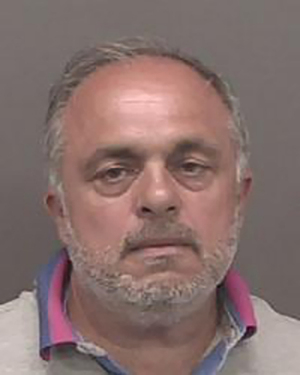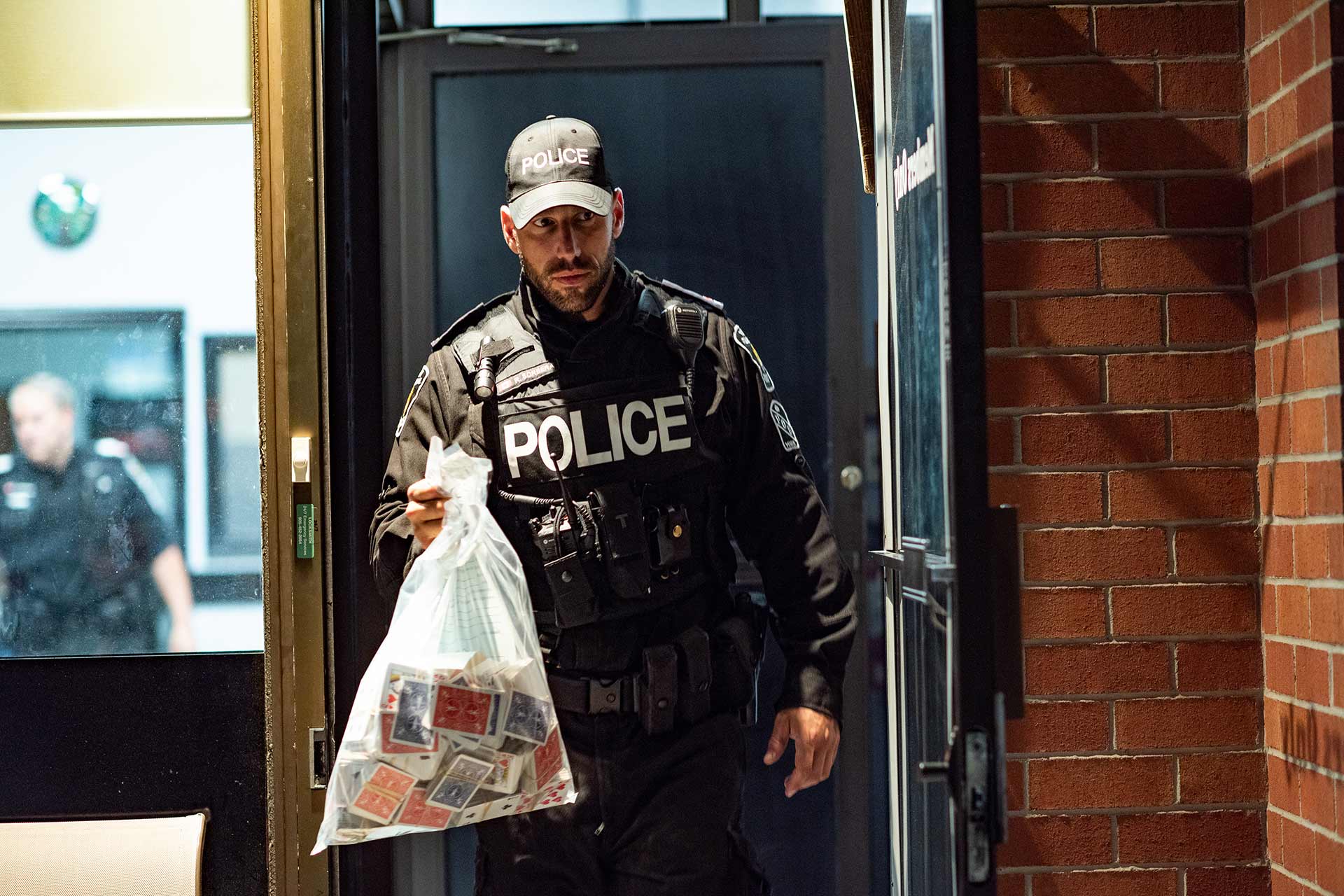
Vincenzo Muià was determined to find out who had killed his brother Carmelo, a leader in a faction of the feared ’Ndrangheta crime group who was gunned down on the streets of Siderno, a coastal city in southern Italy in 2018.
So he got on a plane to Toronto.
Muià wanted to talk with Angelo Figliomeni, 61, whom Canadian police have accused of leading a faction of the ’Ndrangheta so powerful that it is dictating events in Siderno from across an ocean.

“They know; they know who shot,” said Muià on a wiretap quoted in a court document from Italy, where authorities were investigating him for his alleged involvement in organized crime.
After Italian police notified their counterparts in Toronto about Muià’s impending journey across the Atlantic, the agencies began working together. Italian officers were watching as Muià cleared customs and immigration at Toronto’s Pearson International Airport on the evening of March 31, 2019.
Muià’s trip to Canada to speak with Figliomeni, which was previously reported by the National Post, underscores the power of the ’Ndrangheta faction he allegedly leads in the Greater Toronto Area, according to Italian and Canadian authorities and experts.
Figliomeni declined to comment through his lawyer. While Italian court documents show that Muià thought he had information about who may have killed his brother, there is no allegation that Figliomeni was in any way responsible for the murder.
The episode also highlights problems Canada has in prosecuting organized crime groups, due to what experts say are overly broad interpretations of laws meant to protect individual rights.
“The Canadian security intelligence apparatus, inclusive of the police, does not have the same protections and the same benefits that our international partners have when it comes down to investigating transnational organized crime threats,” said Calvin Chrustie, a retired senior federal Royal Canadian Mounted Police officer.
Stephen Schneider, a criminology professor at St. Mary’s University in Nova Scotia, said Italian authorities are “frustrated” by the fact that alleged ’Ndrangheta members have found security in Canada. But there’s little they can do.
“There’s just case after case of offenders who would otherwise be in jail in the United States or Italy that are roaming free here,” said Schneider, the author of “Iced: The Story of Organized Crime in Canada.”
Figliomeni was previously convicted on weapons charges in Italy and still faces charges there, where court documents show he was wanted for “mafia association.” But he is safe in Canada, where the “mafia association” charge is not an extraditable offense. In fact, it doesn’t even exist in the Canadian legal code.
Vittorio Rizzi, a deputy director general of Italy’s Public Security Department, said inconsistencies in laws between countries challenge international efforts to combat the ’Ndrangheta.
“The misalignment of legal systems is a constant in cooperation activity,” said Rizzi, who leads an initiative against the ’Ndrangheta involving law enforcement in 18 countries, including Canada.
How Italy’s ’Ndrangheta Mafia Allegedly Infiltrated Canadian Banks

Some years after he left Italy and set up in Canada, Figliomeni became the prime suspect in a major organized crime investigation by Toronto’s York Regional Police, which led to charges that his organization had laundered illicit funds. But prosecutors abandoned the case after it was shown that police had listened to calls between defendants and their lawyers, and charges against Figliomeni and others were .
The collapse of the case, known as Project Sindacato, added to a long list of Canada’s failed efforts to prosecute organized crime, which experts blame mainly on two quirks of the legal system: an obligation for prosecutors to disclose to defense lawyers more information than in other countries — which can lead to lengthy wrangling over what must be shared — plus a separate law requiring cases that go before a province’s Superior Court to be completed within 30 months of charges being laid.
Such laws “make it virtually impossible to prosecute certain criminal and threat convergence cases in Canada,” according to a recent report by the International Coalition Against Illicit Economies, a Washington, D.C.-based security consulting firm.
Chrustie, who co-authored the report, said defense lawyers in Canada have the right to far more information than their counterparts in countries like the U.S., the U.K., and Australia.
“There are extremely limited provisions to protect sensitive information, informants or investigative techniques,” he said in an interview.
The decision to drop the case against Figliomeni and his associates frustrated the officers who worked on Project Sindacato. York Regional Police had spent $8 million (US$6.1 million) and involved 500 officers in what they touted as the largest organized crime investigation in their history.

As the former York Regional Police superintendent for organized crime, Mike Slack was a senior officer on the investigation. He said he was at police headquarters in a meeting with “the main players in the case” –– including investigators and prosecutors –– the evening the decision came down from government prosecutors that it would be abandoned.
“A lot of emotions were expressed,” recalled Slack, who has since retired. “A lot of head shaking, walking around and coming back and sitting down.”
Slack said police did not use calls between lawyers and their clients to build their case, and added that among about 1.5 million intercepted communications, it was normal that investigators might capture such calls.
“They don’t have enough resources,” he said of the government Crown prosecutors. “They don’t have enough Crowns. The Crowns are basically working on their own, trying to go through volumes and volumes of disclosure. We get disclosure in a file with terabyte hard drives now.”
Adam Boni, a Toronto criminal lawyer and former federal Crown prosecutor, called the criticisms made by senior York Regional Police officers “hard to swallow.”
“These decisions to stay proceedings because of error, carelessness or downright dishonesty –– these are decisions that are not lightly made,” said Boni, who was not involved in Project Sindacato but has handled many organized crime cases in his 30-year career.
“It just smacks of armchair quarterbacking now to say, ‘Well, you know, we could have or we should have proceeded,’” he said.
It was the wiretapped calls between suspects and their lawyers that convinced prosecutors to stay the charges. But early in the case, lawyers for the defendants also filed a joint motion arguing that police had mischaracterized “mundane and innocuous actions as sinister criminal meetings” to match their preconceived notion that the accused were mobsters.
Ontario provincial prosecutors declined to answer questions about why they decided to stay charges relating to organized crime and money laundering in the Sindacato case.
Support More Investigations Into the ’Ndrangheta
OCCRP is one of the only media outlets to consistently investigate the global reach of organized crime.
To support this kind of reporting, become an OCCRP Accomplice today.


